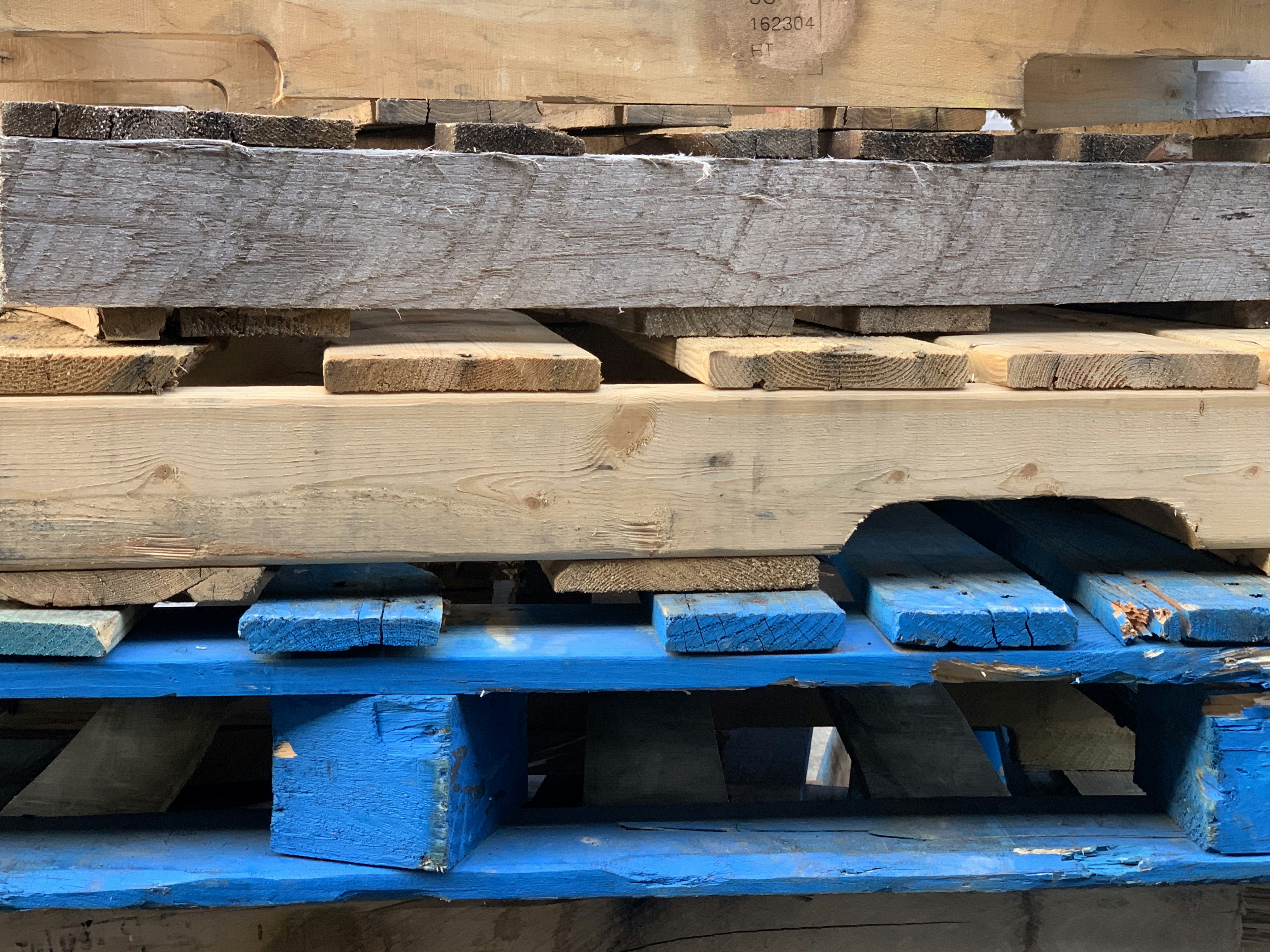
Introduction to the Importance of Eco-Friendly Wooden Pallets
Eco-friendly wooden pallets are essential elements in many industries due to their positive impact on the environment. The use of these pallets reflects a commitment to sustainability and waste reduction, enhancing companies’ efforts to achieve environmental goals. Sustainable wooden pallets are made from natural, biodegradable materials, significantly reducing environmental impact compared to traditional pallets, which may contain harmful chemicals.
Everyone recognizes the importance of preserving the environment, and thus the growing demand for eco-friendly wooden pallets contributes to promoting sustainability in business. With increasing environmental awareness, more companies are transitioning their operations to more sustainable models. Using these pallets for shipping and storage is a popular choice, as they not only provide an environmental solution but also offer high quality and efficiency in transportation.
Moreover, these pallets play a vital role in reducing waste generated from non-biodegradable materials. The widespread adoption of wooden pallets helps minimize waste from manufacturing processes and aids in conserving forests, which are a primary source of wood. These activities contribute to improving air quality and reducing carbon emissions in the atmosphere, furthering global efforts to combat climate change.
In conclusion, the increasing demand for eco-friendly wooden pallets represents an excellent opportunity for a more sustainable industry, allowing companies to operate in alignment with the growing focus on environmental issues and their impacts on the future.
The Process of Manufacturing Wooden Pallets
The process of manufacturing eco-friendly wooden pallets is an integrated operation aimed at ensuring sustainable resource use. This process begins with selecting the appropriate type of wood, relying on sustainable sources that follow responsible forest management practices. This step ensures not only the quality of the wood but also protects the environment from degradation caused by unregulated logging.
After selecting the wood, the cutting phase begins, using specialized equipment to cut the wood to the required dimensions. This stage is highly precise; care is taken to minimize wood waste and ensure dimensional accuracy for high-quality pallets. Modern cutting techniques are adopted to enhance work efficiency and conserve the resources used.
Next in the manufacturing process is shaping the different pallet components, which includes preparing items such as blocks and boards. Modern machines are used to facilitate this process, helping maintain product consistency and alignment with required specifications. Techniques such as thermal shaping and rapid assembly are employed to expedite this phase.
Once the components are shaped, the assembly process begins, where the various elements are joined using eco-friendly adhesives and mechanical fastening methods. This stage ensures that each pallet is made under high safety and quality standards. Finally, finishing involves enhancing the pallets’ resistance to environmental factors and addressing aesthetic details such as painting or polishing.
All these steps in the manufacturing process of wooden pallets aim to achieve the highest quality levels while minimizing environmental impact, striking a balance between economic efficiency and environmental sustainability.
Available Sizes and Colors of Wooden Pallets
Wooden pallets are fundamental elements in many industries, playing a vital role in transportation and storage processes. The availability of various sizes and colors of these pallets can meet different market needs. Standard sizes for wooden pallets typically start at 120 cm by 80 cm, but other sizes can also be customized according to customer requests, providing flexibility to meet diverse project requirements.
Moreover, the market offers multiple color options that suit users’ tastes and needs. Natural colors like brown and beige give the pallets an elegant appearance, making them suitable for use in commercial and industrial environments. In contrast, more vibrant colors like blue and green can provide a modern and distinctive touch, making them appropriate for events and special occasions.
Additionally, the choice of colors goes beyond aesthetics; some colors can enhance brand recognition, which is important for companies looking to attract customers during sales. Various colors also help organize inventory, as a specific color can be used to distinguish pallets designated for certain products. Thus, the wooden pallet manufacturing company meets diverse customer needs by providing customized sizes and colors, facilitating the use of pallets in multiple fields.
Benefits of Using Eco-Friendly Wooden Pallets
Eco-friendly wooden pallets represent a balanced and sustainable choice in the world of packaging. Among the many benefits of using these pallets, durability is a key factor that enhances their effectiveness in shipping and storage. The wooden materials used are known for their strength, allowing them to support heavy weights without rapid damage. Consequently, these pallets withstand various environmental conditions, ensuring the protection of transported products.
In addition to durability, wooden pallets are lightweight, facilitating handling and transportation. Their light weight makes them an ideal choice for companies seeking to reduce shipping costs, and they also contribute to improving overall logistical efficiency. Thanks to their lightweight nature, workers can handle them easily, reducing the risk of injuries during transport.
From an environmental perspective, using eco-friendly wooden pallets supports efforts to preserve the environment and reduce carbon emissions. These pallets are made from sustainable wood sources, contributing to minimizing the environmental impact of deforestation. Additionally, recycling and reusing these pallets after their life cycle enhances resource conservation and reduces waste. The use of natural materials also improves the public image of brands that rely on them, automatically positioning them as socially and environmentally responsible institutions, thereby increasing customer loyalty.
In summary, the multiple benefits of using eco-friendly wooden pallets extend beyond improving operational efficiency; they also enhance responsible environmental practices and improve brand value in a competitive market.






